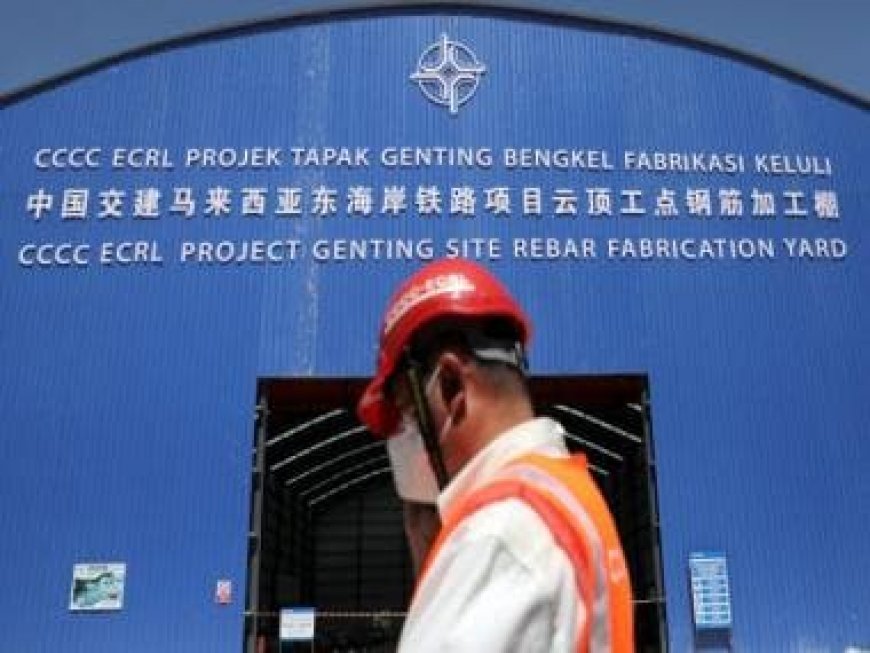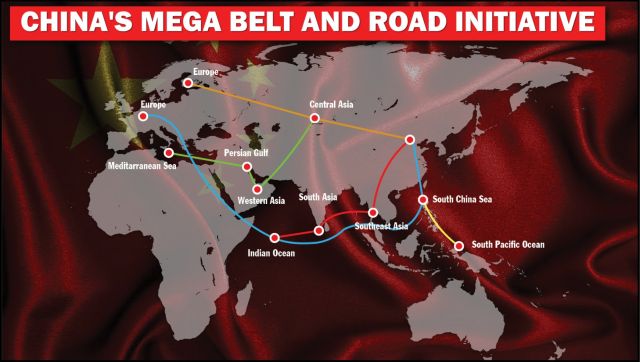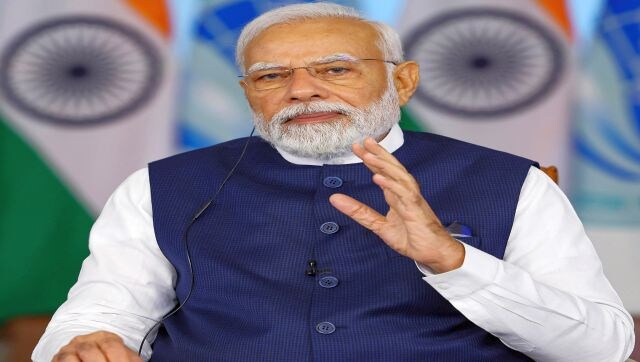At SCO, India refuses to back China’s BRI: Why New Delhi continues to oppose it
At SCO, India refuses to back China’s BRI: Why New Delhi continues to oppose it

If there was one key takeaway from Tuesday’s (4 July) SCO Summit, which was held virtually and hosted by India, it was New Delhi’s resistance to China’s Belt and Road Initiative (BRI). Prime Minister Narendra Modi even made a veiled dig at Beijing over the ambitious project, saying that while connectivity projects are crucial, it is also important to respect the sovereignty and regional integrity of other countries.
Speaking at the summit, Modi said: “Strong connectivity is crucial for the progress of any region. Better connectivity not only enhances mutual trade but also fosters mutual trust. However, in these efforts, it is essential to uphold the basic principles of the SCO charter, particularly respecting the sovereignty and regional integrity of the member states.”
At the end of the virtual summit of the grouping – comprising China, India, Russia, Pakistan, Kazakhstan, Kyrgyzstan, Pakistan, Tajikistan and Uzbekistan, and now even Iran – New Delhi refused to endorse the BRI, becoming the only country to do so. In fact, India refused to sign on the paragraph in the New Delhi declaration supporting the BRI, which is Chinese president Xi Jinping’s pet project.
The BRI paragraph in the New Delhi declaration of 2023 read: “Reaffirming their support for China’s “Belt and Road Initiative” (BRI) initiative, the Republic of Kazakhstan, Kyrgyz Republic, Islamic Republic of Pakistan, Russian Federation, Republic of Tajikistan and Republic of Uzbekistan note the ongoing work to jointly implement this project, including efforts to link the construction of the Eurasian Economic Union and BRI.”
But what is it about the BRI project that irks India? Why does New Delhi continue to oppose the initiative, if the infrastructure project, as Xi Jinping states, would facilitate regional cooperation and trade and investment?
We take a closer look.
What is BRI?
Before we understand India’s resistance to the ambitious project, let’s take a closer look at what exactly is the BRI. The Belt and Road Initiative, also referred to as the New Silk Road, was launched in 2013 by China’s Xi Jinping. It is essentially a vast collection of development and investment initiatives devised to link East Asia and Europe through physical infrastructure. In the decade since, the project has expanded to Africa, Oceania, and Latin America, significantly broadening China’s economic and political influence.
Earlier, it was also called the ‘One Belt, One Road’ initiative, but finally got the name as Belt and Road Initiative.

According to the European Bank, the BRI comprises a land route and a sea route. The former links China to south east Asia, south Asia, Central Asia, Russia and Europe by land and the latter connects China’s coastal regions to south east and south Asia, the South Pacific, West Asia, Eastern Africa, and Europe.
As of March 2022, nearly 147 countries have joined the Belt and Road Initiative by signing a Memorandum of Understanding (MoU) with China. As recently as May of this year, even Afghanistan, now ruled by the Taliban, has joined the initiative.
And how much does this mega project cost? A 2018 report published by The Guardian pegged the cost of the venture to cost more than $1 trillion, although there are differing estimates as to how much money has been spent to date.
Another analysis has revealed that China has invested more than $210 billion, the majority in Asia for the initiative. And China’s efforts abroad don’t stop there. The Belt and Road also means that Chinese firms are engaging in construction work across the globe on an unparalleled scale.
It is important to note that the BRI is Xi Jinping’s pet project and is seen as highly important and significant in the Asian nation. However, even Chinese officials have struggled to define what entails the project, with one diplomat in the past, saying, “It is not a solo song but a chorus.”
And China’s former foreign minister Wang Yi had earlier described it as a “symphony of all relevant parties”.

Why is India resistant to BRI?
Ever since the project was launched and countries began to sign up for it, India has routinely opposed it with even External Affairs Minister S Jaishankar voicing concerns over the infrastructure project.
One of the biggest issues India has with the BRI is that an important arm of it, the China-Pakistan Economic Corridor (CPEC) – that runs from Kashgar in China’s Xinjiang Uighur Autonomous Region to Gwadar port in southwestern Baluchistan in Pakistan – enters Indian territory occupied by Pakistan in Gilgit Baltistan.
Furthermore, the investment project includes the renovation and upgradation of Pakistan’s National Highway 35 — the Karakoram Highway or China-Pakistan Friendship Highway — as well as revamping the highway connecting Gilgit with Skardu to the north of the Line of Control (LoC), as per Indian Express.
India is of the firm opinion that this project violates sovereignty and territorial integrity as well as international laws.
India is also wary that the project boosts China’s strategic presence in the region. It also fears that such an initiative would make countries indebted to Beijing. It had voiced this concern in 2017 when invited to join the project, saying, “Connectivity initiatives must follow principles of financial responsibility to avoid projects that would create unsustainable debt burden for communities.”
In October 2021, Priyanka Sohoni, Second Secretary at the Indian Embassy in China, had said, as per an Indian Express report, “I wish to say that as far as China’s BRI is concerned, we are uniquely affected by it. It’s inclusion of the so-called China Pakistan Economic Corridor (CPEC) as a flagship project impinges on India’s sovereignty.”
In the following year, Ministry of External Affairs spokesperson Arindam Bagchi had said, “We have seen reports on encouraging a proposed participation of third countries in so-called CPEC projects. Any such actions by any party directly infringe on India’s sovereignty and territorial integrity.”
In November 2022, External Affairs Minister S Jaishankar at a virtual meeting of the SCO, hosted by China’s then premier Li Keqiang, had voiced India’s dissent to the project. He had then stated, “Connectivity projects should respect the sovereignty and territorial integrity of Member States and respect international law”.
Represented India at the meeting of SCO Council of Heads of Government which has just concluded.
-Underlined that we need better connectivity in the SCO region built on centrality of interests of Central Asian states. pic.twitter.com/9EjQrekpaX
— Dr. S. Jaishankar (@DrSJaishankar) November 1, 2022
On Twitter, he later wrote, “I underlined that we need better connectivity in the SCO region built on centrality of interests of Central Asian states. (This) will unlock the economic potential of this region in which Chabahar port and the International North South Transport Corridor could become enablers.”
Do other countries oppose BRI?
India isn’t the lone voice against the BRI. The US and its major allies also view the initiative with suspicion, with many noting that it is debt trap diplomacy, predatory in nature and a threat to Western interests.
A report by South-South Research Initiative (SSRI) in January also revealed that the Belt and Road has a number of negative impacts on its partner countries.
According to noted think-tank, Council on Foreign Relations (CFR), there are others who oppose the BRI owing to how it will contribute to the climate crisis.
With inputs from agencies
Read all the Latest News, Trending News, Cricket News, Bollywood News,
India News and Entertainment News here. Follow us on Facebook, Twitter and Instagram.
What's Your Reaction?



























































